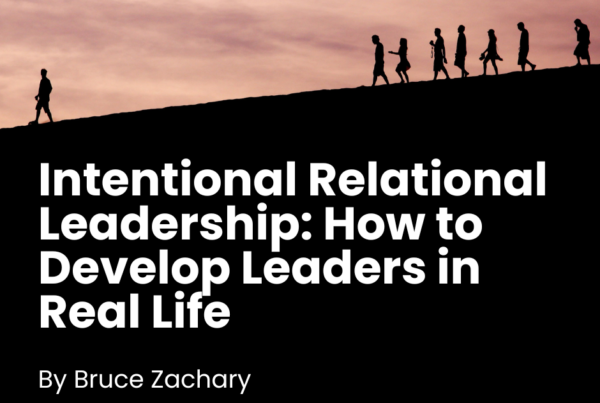
Brain Cramps
Over the past ten years of my life as a follower of Jesus perhaps no theological category has caused me to spend hours reading, thinking, and processing as much as the category of Soteriology. Soteriology is the study of salvation. More specifically, it is the study of what we might call the fine print of salvation. Basic soteriology is what unifies all born-again Christians as the universal church. Basic soteriology simply states the simple gospel. It is the truth that though all people are sinners we can be saved by grace alone, through faith alone, in the Jesus Christ of the Bible alone. Basic soteriology affirms the basic concepts of the gospel message.
But beyond the basic truth of the simple gospel the systematic theology category of soteriology goes much deeper. It discusses such things as the order of the decrees of God in salvation. It discusses the place of divine election and sovereignty and their relationship to human responsibility in the salvation of people. Does God choose us? Do we choose God? Is it both? Soteriology addresses the extensiveness and intensiveness of the effects of sin and the curse in the lives of human beings. Did man lose free-will in becoming a sinner or does he retain free moral agency as God’s image-bearer? Soteriology addresses the extent of the atonement of the cross of Christ on behalf of human beings. Did Jesus die for every individual sinner or only the elect who ultimately become believers? Soteriology address the application of redemption in the lives of God’s people. Do we exercise faith through which we become born-again, or does God make us born-again so that we exercise faith? Soteriology addresses the security of the believer in Christ. If I am born-again does God keep me saved or do I? Can I lose my salvation through habitual sinning after coming to Jesus, or does the grace of God and work of the Holy Spirit cause me to persevere ultimately faithful until I see Jesus face to face?
My Early Soteriological Journey
Early on in my Christian experience I was discipled in what would be considered a Reformed church. The first Bible study I attended of any kind was a study through eminent Reformed theologian R.C. Sproul’s book Chosen by God. Needless to say, looking back that probably wasn’t the most helpful study I could’ve engaged in as a new Christian given the gravity and meaty nature of the topics that book articulates. Non-the-less, that study and subsequent reading on the subject over the next few years resulted in my becoming an avid and, I would say, militant Five Point Calvinist. A Five Point Calvinist is one who adheres to all Five Points of the acrostic TULIP which describe what most today consider the finer points of Reformed Soteriology. In short the Five Points teach as follows:
Total Depravity: As a result of the curse on mankind which we have partaken of due to our willful rebellion against God in Adam, all mankind is depraved, or completely sinful. The effect of sin in our lives is not merely extensive though, it is also intensive and destroys the freedom of the will in humans. Mankind is in a state of total inability and cannot trust in the gospel nor does he desire to do so. But for the elect God graciously softens their hearts and removes the barrier of total inability that they might see their need for Him and trust in the gospel.
Unconditional Election: God chooses whom He will save and whom He won’t simply in accordance with His own pleasure and plans without consideration of what man would or wouldn’t, could or couldn’t choose when presented with the gospel message.
Limited Atonement: Jesus did not die for every individual sinner in a saving way. Rather, only those whom God unconditionally elected to salvation in eternity past have their sins atoned for savingly by Jesus on the cross.
Irresistible Grace: All those whom God unconditionally elected and provided atonement for in the cross of Christ will be saved through the irresistible call of the Holy Spirit. God is able to overcome even the hardest heart and bring the spiritually dead sinner to faith.
A sub-doctrine of Irresistible Grace is the Reformed understanding of the doctrine of Monergistic Regeneration. This doctrine is summarized by R.C. Sproul this way: “We do not believe in order to be born-again. We are born-again in order that we may believe.” Simply put, this doctrine teaches that God makes people new creations before they ever exercise or express faith in the gospel. When someone responds to the gospel in faith it is because God has already done a secret work in their heart bringing them to spiritual life and saved them.
Perseverance of the Saints: All whom God unconditionally elected in eternity past, made atonement for on the cross, and who are born-again through the irresistible work of the Holy Spirit will persevere in faith in Christ till death or the Second Coming. Of all who are found, none will be lost. It is argued that if we didn’t choose to be saved then we cannot choose to be unsaved either.
Soteriology in the Middle
Whereas in the past I would’ve preached and been able to affirm my whole-hearted agreement with the above declarations, today I’m in a different place. To be sure I see a lot of value in some of the statements above. But there are a couple key areas of disagreement I have with some of the propositions of Five Point Calvinism. If you were to attend a Refuge Distinctives class at our church you’d hear us say in regard to our theological streams that we are Evangelical, Missional, and Moderate. On the Moderate point one of the things we are getting at is that we are neither Five Point Calvinists or what is often seen as the only other option, Five Point Arminians. Instead, we are moderate. We are in the middle of these two systems of soteriology. We say this because though we would affirm the basic concepts of Total Depravity and Perseverance of the Saints for instance, we particularly would disagree with Limited Atonement and Irresistible Grace.
Something Just Isn’t Right
Theses points have become to me the most troubling of the Five Points in recent months. I remember the first time I heard those words, “We do not believe in order to be born-again. We are born-again in order that we may believe.” Even as a new Christian they just didn’t feel right. I had heard people say that to be saved I needed to trust in Jesus. I had thought I’d read that in the Bible. But this doctrine seemed to say that I trusted in Jesus because I’d been irresistibly saved without my knowledge or choice in anyway before I exercised or expressed faith in Jesus. I also remember hearing for the first time that if you looked closely enough at the Bible you’d see plainly that Jesus didn’t really die in an atoning way for all individuals. That just seemed wrong as well. I didn’t understand how you could fit “some” or “the elect” into verses like John 3:16, 1 Timothy 4:10, or 1 John 2:2. Still I was fully discipled in Calvinism and shown how it all made “logical” sense. Years later after reading both sides of this issue along with my Bible I’ve come back to that place of discomfort with these doctrines. However logical the doctrines may be in connection with the Calvinistic system, I don’t see it as scripturally supported logic.
To Come…
In my next posts I will flesh out some of what I now see as a more biblical and moderate approach to the issues of Limited Atonement and Irresistible Grace and what I would call Moderate Soteriology. I’ll look forward to the discussions that hopefully roll out from opening up this series of posts! But in this area almost more than any other we need to remember to stand together and speak what we believe to be the truth in a spirit of unity and love. Until next time…








